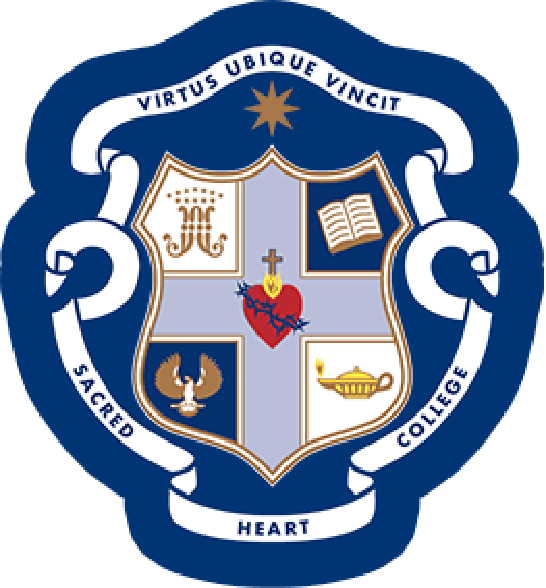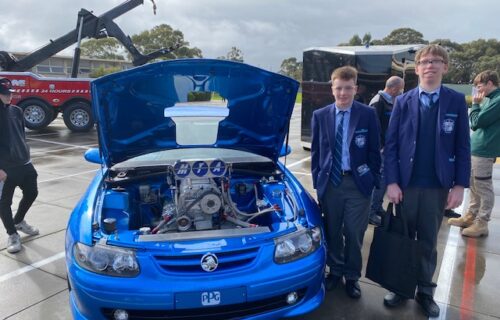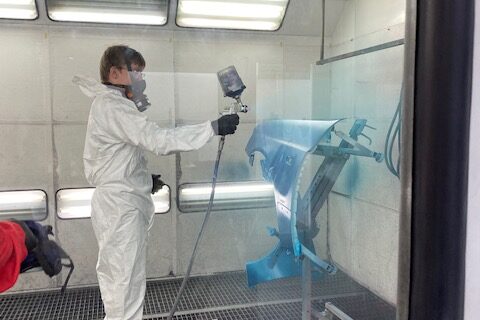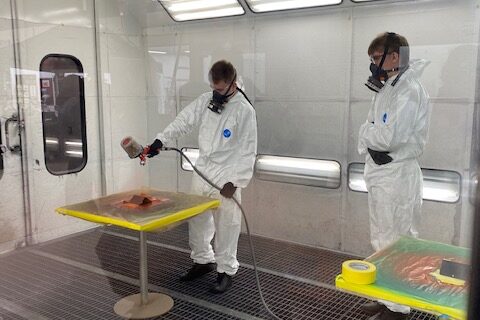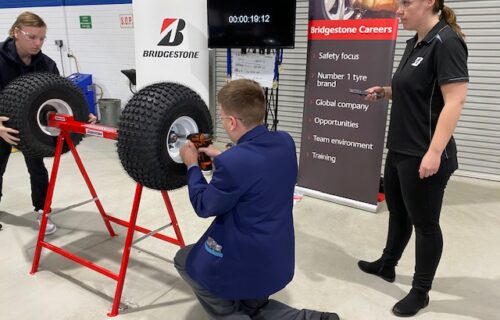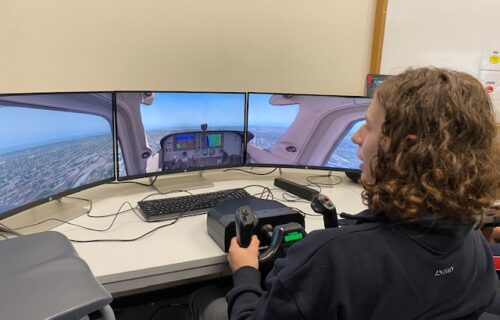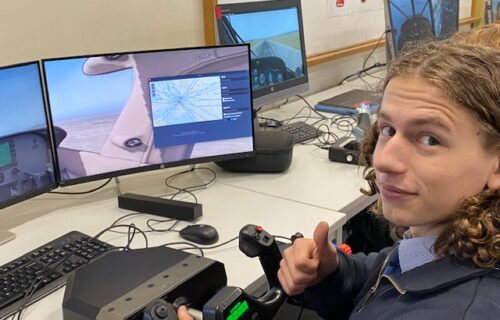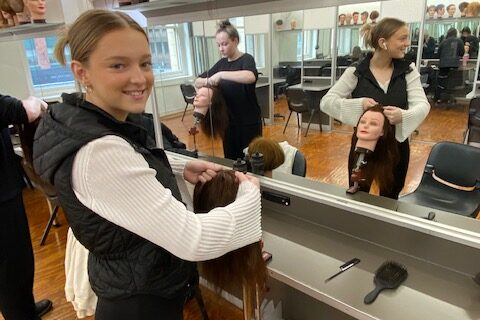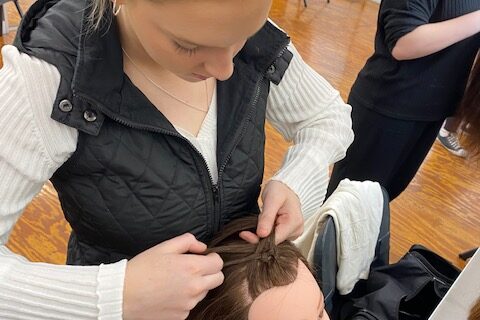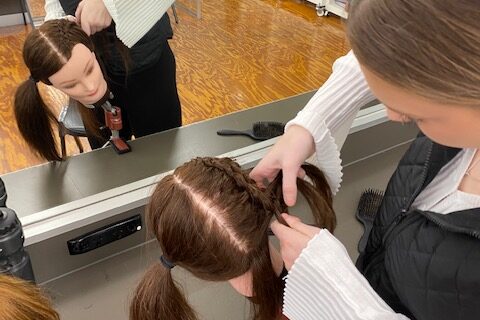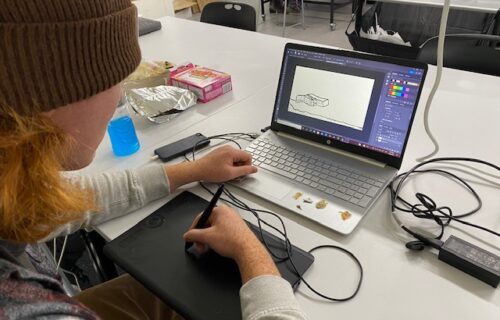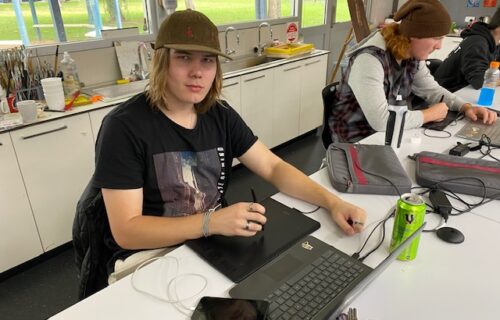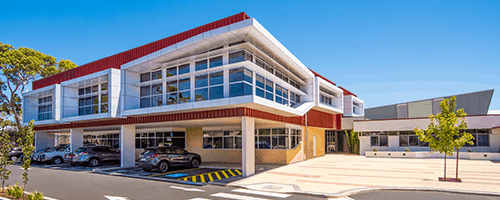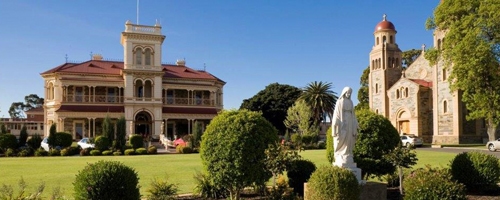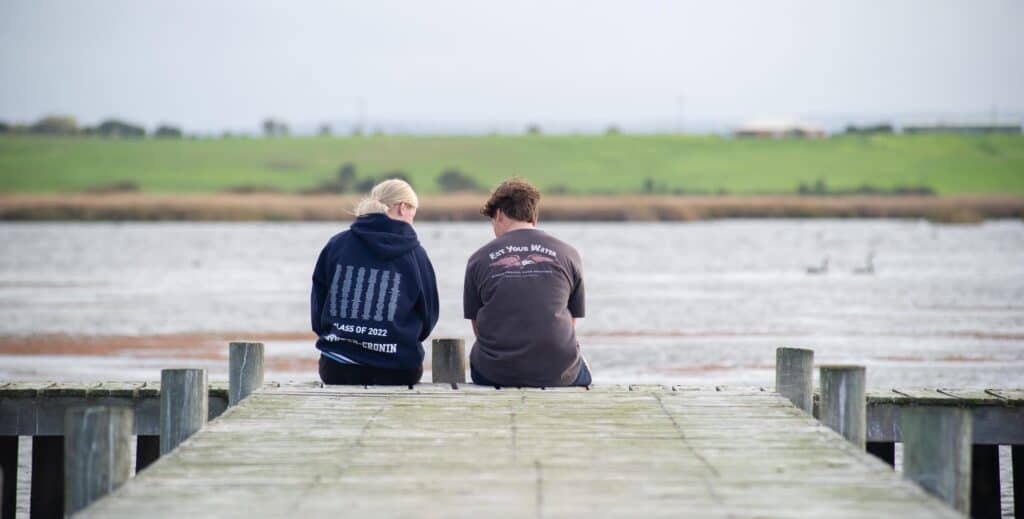
To our Sacred Heart Community
The importance of rest for our cognitive functioning
At this time of retreat for our Year 12 students, it reminds us of the importance, now more than ever, to take some time out of our busy lives to rest, reflect, recharge and reconnect. In episode 2 of an excellent series on the ABC, Our Brain (available on ABC iView) they explore the myth around multi tasking and the negative cognitive impact of switching tasks (multi tasking). Researchers then go on to talk about the Adolescent Reasoning Initiative (from 43.00) aimed at teaching teens how to learn rather than just what to learn formed using evidence-based research.
The key to all of this is taking care of the brain in the following ways:
- Priming the brain, letting it rest, and doing one thing at a time. It can be as little as a 5 minute break taken 5 times throughout the day, aimed at letting the brain rest.
- Energising the brain by taking in information and making abstract meaning from the information at a deeper level to make connections with information already known.
- Potentiating the brain by engaging in innovative thinking.
Work Experience for 2022
BEFORE CONSIDERING WORK EXPERIENCE PLEASE BE AWARE OF THE FOLLOWING:
It is a legal requirement that prior to commencing Work Experience students are inducted in the following areas: Work Health and Safety Act 2012 (SA), Children and Young People (Safety) Act 2017 (SA), Sex Discrimination Act 1984 (SA), Equal Opportunity Act 1984 (SA) and Child Safety (Prohibited Persons) Act 2016 (SA). Adequate time (approximately 5 hours) should be allocated to cover these topics effectively and students need to demonstrate their understanding. This induction is done by the school and is consistent with our Duty of Care to ensure that no student is placed where they may not be safe physically or psychologically.
In addition to this, the Work Experience form must be signed by the student, work placement provider, parent/caregiver (all arranged by the student) and finally the Principal or delegate (arranged by the school). The original Work Experience Agreement form then becomes a legal contract which sets the school insurance cover in place and must be retained by the school.
The school must also provide a contact person who is responsible for each student for the duration of their placement.
Work Experience is a very valuable opportunity for most students, however, it does take time to ensure that the above expectations are met. We are happy to accommodate students in the times allocated. Please do not cause yourself or the College embarrassment by making other arrangements and then asking for exceptions to be made.
Students who wish to do Work Experience during 2022 are advised that the dates are:
| Work Experience Weeks | Paperwork Deadline |
| 10 – 14 October | 2 September |
| 21 – 25 November (Optional Work Experience Year 12’s only) | 21 October |
| 5 – 9 December | 4 November |
Unpaid work trials should only occur if it’s necessary to evaluate a worker’s suitability for a job. They should only consist of the worker demonstrating their skills relevant to the job’s required tasks or observation of others performing the work.
Please note this is general Work Experience only. Students undertaking a VET program will need to organise their VET work placement with the VET Office.
Key Dates
-
University of Adelaide Parents Information Session
Wednesday 6 July
6.30 – 7.30 pmThe University of Adelaide are pleased to present an opportunity for parents, caregivers and families of high school students to meet expert advisers from the Domestic Recruitment Team at The University of Adelaide and hear information about 2022 tertiary applications.
At their 2022 Parents Information Session you will learn about degree choices, SATAC procedures, timelines, support services, accommodation, and everything else that is involved in the lead up to life at university.
There will also be a chance for you to ask questions or discuss anything else that they might be able to help with.
Find out more here.
-
UniSA School Holiday Campus Tours
Magill: Wednesday 13 July 10.00 – 11.00 am
Mawson Lakes: Thursday 14 July 10.00 – 11.00 am
City West & City East: Wednesday 20 July 10.00 – 11.00 amTake a tour of UniSA’s state-of-the-art facilities, chat to staff about your study and career options and connect with UniSA staff in a small group tour.
Find out more here.
-
Flinders Medicine and STEM Seminar
Thursday 14 July 8.45 am – 2.30 pm
Flinders University, Bedford Park CampusThe Medicine and STEM Seminar is a School Holiday event where attendees will participate in a full day of events, including presentations and interactive workshops. They will leave the event with information and insight on careers in health, Flinders University courses and their pathways, and, having heard first hand experiences from current Academics, students and researchers.
Find out more here.
-
ICHM Discovery Day
Thursday 14 July 9.30 am – 3.30 pm
International College of Hotel ManagementAn ICHM Discovery Day could be for you! ICHM Discovery Days aim to get you thinking differently about your post high school studies and career development, covering a range of exciting topics including international business and tourism, luxury hotel design and hospitality opportunities.
Join ICHM for a day of fun and discovery while finding out about different areas of learning, that could help you develop and explore a future in hospitality and business management.
Find out more here.
-
Flinders – Experience Animal Behaviour
Thursday 21 July 9.15 am – 2.30 pm
Flinders University, Bedford Park CampusAre you interested in working with animals? Come and learn why animals behave the way they do to assess their welfare, understand evolution and help conservation. Join Animal Behaviour researchers and students to find out what it’s like studying Animal Behaviour at Flinders and experience hands-on opportunities. They will discuss their exciting research as well as career pathways with an Animal Behaviour degree.
Find out more here.
-
ACU – Talk with Psychologists
Wednesday 14 September
6.00 – 7.00 pm
(Online)A career in psychology will allow you to explore the human mind and behaviours, and improve outcomes for a range of people in the community.
Join online to hear from ACU alumni about their experiences working as psychologists.
Take part in a Q&A session with graduates and learn what it is like to provide meaningful insight and support to others, when they need it most.
Find out more here.
Open Days
-
Flinders Open Day 2022
Friday 12 August – Saturday 13 August
9.00 – 3.00 pm
Flinders University, Bedford Park CampusOpen Day is a fantastic opportunity for Year 10, 11 and 12 students to:
- Speak with study area experts
- Learn more about their course options and career pathways
- Take a campus tour with a current Flinders student
- Attend presentations on courses, scholarships, study abroad and how to apply
- Experience Flinders’ award winning Student Hub and Plaza.
Over two days, explore the amazing Bedford Park campus, from the state-of-the-art facilities to the awesome cafes, stunning natural surroundings and more.
Speak one-on-one with other students, advisors and lecturers and uncover all the benefits that studying at Flinders has to offer. There are information sessions on different career and study areas, interactive activities and demonstrations ranging from the science behind a murder scene to uncovering what a shark’s last meal was.
Open Days are fun, exciting and your first step towards your future career.
Find out more here.
-
University of Adelaide Open Day
On Campus: Sunday 14 August 9.00 am – 4.00 pm
Online: Friday 19 August 2.00 – 8.00 pmExperience live Q&A sessions with experts, take a campus tour and find out more about their study areas.
Find out more here.
-
Tabor College Open Day
Saturday 13 August
10.00 am – 3.00 pmTabor, Millswood offer courses leading to careers in Teacher Education, Counselling, Music, Youth Work and Ministry. You’ll experience a little of what being a student at Tabor might be like for you!
You can immerse yourself in Tabor’s Open Day with interactive experiences, informative presentations, campus tours, and one-on-one opportunities with staff and student ambassadors.
Get one-on-one academic advice from the heads of course programs. Talk with staff who can help you discuss your career options and answer any other questions you have.
Find out more here.
-
AIE Open Day
Sunday 14 August
10.00 am – 3.00 pm
Academy of Interactive Entertainment, AdelaideDiscover the courses designed to get you started in game development, 3D animation, film and visual effects at the AIE Open Day.
AIE’s Open Day is a great opportunity to meet teachers, staff and students. The day will cover everything you need to know about:
- careers in games and VFX
- studios and industries
- courses from beginners to professional mastery, and
- the software, skills and knowledge used.
AIE’s Open Day will also include presentations on entry requirements and how to apply. Find out how AIE can get you into a creative career.
Find out more here.
-
ADFA Open Day
Saturday 20 August
9.00 am – 3.00 pm
ADFA & OnlineThe 2022 ADFA Open Day is on Saturday 20 August. There will also be an online/virtual version of the Open Day for people who are unable to visit Canberra on this date.
Check out the virtual tour.
Be the first to hear by registering here.
-
Making Decisions and Asking Questions
Programs & Scholarships
-
UNSW Co-op Program
Open/Closing Dates: 1 May 2022 – 30 September 2022
Value: $19,600 AUD per yearJoining the Co-op community at UNSW enables you to form life changing connections and open up a world of opportunities. As a scholar, not only do you gain academic and professional insight from alumni, older scholars, and the broader Co-op community, you also start forming your professional and social network from day one.
Find our more here.
-
Melbourne Chancellor’s Scholarship
Open/Closing Dates: 1 August 2022 – 29 September 2022
Value: 100% fee remission and $17,500 – $32,500 AUDThis scholarship is awarded to talented students in recognition of their outstanding academic achievement during their Australian Year 12.
Find out more here.
-
Australian Veterans’ Children Assistance Trust – AVCAT Scholarships
Applications open on 18 August 2022, Vietnam Veterans’ Day, and close at midnight AEDT on 31 October 2022.
AVCAT scholarships, including the Long Tan Bursary, are tertiary scholarships for the children and grandchildren of Australian ex-serving veterans. Scholarships are $4000–$6000 per year for three years.
Applicants must be:
- Enrolled or planning to enrol in a full-time course for one or more academic year’s duration at university TAFE, or RTO in 2023
- The child, stepchild, foster child, or grandchild of an Australian ex-serving veteran
- An Australian citizen or permanent resident
- In receipt of, or eligible to receive, Centrelink payments including Youth Allowance, ABSTUDY, Austudy, VCES or an accepted means-tested Commonwealth government payment in 2023.
The Long Tan Bursary is sponsored by the Australian Government Department of Veterans’ Affairs. Find information about scholarships, the application process or scholarship eligibility at avcat.org.au.
-
St Andrew’s College
St Andrew’s College is a welcoming and inclusive community, a place to live on campus while studying at the University of Sydney or another local university. St Andrew’s is home to around 400 students (50:50 male/female), more than half of whom come from rural, regional or remote Australia.
Scholarships
St Andrew’s College awards up to $2 million in scholarships annually, and around 50% of students receive at least one scholarship. There are a number of means-tested scholarships, available to both new and continuing students, to assist those experiencing financial hardship. Scholarships fall into the general categories of:- St Andrew’s Scholars Program
- Means-Tested Scholarships
- All-Round Scholarships
- Creative Arts / Public Speaking Scholarships
- Sporting Scholarships
- Indigenous Scholarships.
When a student applies for a scholarship, they are matched to the most appropriate one for their personal circumstances. Find out more here.
The St Andrew’s Scholars Program provides full fee relief and is awarded for the entire duration of the student’s undergraduate degree. Successful applicants will be exceptional young men and women who thrive academically, are engaged in life, and have the potential to make a significant positive contribution to College and, in the future, the wider community.
Find out more here.
Vocational Education and Training Update – June 2022
VET 2023 – Certificate III Fitness and Certificate III Entrepreneurship & New Business
Year 10 and 11 students – Have you considered studying Cert III Fitness or Cert III Entrepreneurship and New Business in 2023?
These two VET courses are delivered by Queensford College at Marcellin Campus on Mondays and can contribute towards your SACE. To be considered for these certificates, an Expression of Interest will be sent out before the end of term.
Further information regarding other VET Certificate courses for 2023, delivered off campus, will be available early Term 3.
If you would like further information about these and other VET courses please contact the VET office at vet@shc.sa.edu.au.
Motor Trades Association (MTA) Open Day
Students attended the MTA (Motor Trades Association) Open Day on Wednesday 15 June where they got to explore a range of careers on offer in the automotive industry. Activities included spray painting in the booth, pit stop tyre change race and demonstrations in vehicle body repair.
VET Visits
VET student visits this month included Aviation studies at Glenunga International High School, Screen and Media at Thebarton Senior College and Salon Assistant at Clip Joint Education. All students were busy being creative and completing practical projects.
Training and Work
-
School Based Apprenticeships
I am often asked about school based apprenticeships which employers have increasingly embraced over the last 12 months.
Each school based apprenticeship can be different according to the needs of the employer, the training and what the student is hoping to achieve. So there is no one set response to what a school based apprenticeship will look like.
Before considering a school based apprenticeship students and their parents/carers should consider how ready the student is to take on additional responsibilities in the workplace, the training venue and at school. Students are challenged to manage their time well in order to catch up on missed class time. They need to be able to operate in a more adult environment in the workplace and training and in all areas need to effectively communicate in order to keep pace with what is demanded of them in each venue.
In addition the student needs to be certain that their chosen direction is what they want as a school based apprenticeship rolls into a full time apprenticeship once school is completed. If any of these things are lacking the student is better off sticking with a vet course and doing work experience to build their knowledge and experience in their chosen area.
Further information can be found here.
-
Concerns/disputes regarding students’ employment or training
At times, students may have concerns about their employment conditions (casual or part-time work) or concerns about the quality of training they receive (VET, School Based Apprenticeships or Traineeships).
Where concerns or disputes cannot be easily resolved, the following contacts may be useful in providing advice and support to students, at no cost:
South Australian Fair Work Ombudsman
-
Understanding Workplace Health and Safety
Workplace Health and Safety (WHS), also known as Occupational Health and Safety (OH&S), are a series of laws and regulations.
They’re in place to ensure that employers make every effort to protect you (their employee and the public) from both physical and psychosocial workplace hazards.
From slippery floors, heavy loads, unguarded machinery and hazardous substances, to workplace bullying, violence and aggression, everything is covered.
In 2012 an Australian wide model formed as the basis for health and safety laws. But there are still regional variations, so it’s a good idea to have an idea about what your rights and responsibilities are within your state or territory.
What do WHS laws mean for you?
When you start at work or change jobs, these laws mean employers must provide:- safe premises
- safe machinery and materials
- safe systems of work
- information, instruction, training and supervision
- a suitable working environment and facilities.
Your responsibilities are likely to include:
- following safe work procedures
- using any personal protective equipment (PPE) required
- not interfering with or misusing anything provided for work health and safety at the workplace
- not placing others at risk
- taking every precaution with your own health and safety
- seeking help if your health and safety or that of a colleague is at risk
- reporting injury or illness immediately
- reporting unsafe acts or conditions
- undertaking all training required as part of the WHS.
Starting a new job
When you first start work, or even if you move to a new role in the same company, you’ll probably start off with an employee orientation or induction (they pretty much mean the same thing).Orientations are a run-down of all the important things you should know about day to day business and what happens in an emergency.
It’ll usually include an explanation of what the business expects from you. They’ll let you know about other departments in the organisation and describe the hierarchy (who your supervisors are and anyone else you need to report to). You’ll also learn more about the administrative processes you’ll need to do your job well, as well as any other miscellaneous policies and rules.
You’ll also cover WHS topics such as:
- hazards and risks in your workplace.
- special equipment, such as personal protective equipment, which may require additional training
- safe work practices
- work health and safety legislation
- emergency procedures e.g. exits, evacuation measures, emergency contacts
- location of the first aid station
- how and where to report injuries, unsafe conditions and acts
- You’re right to refuse hazardous work.
If you are going into a job that has risk associated with it, for example agriculture, transport, construction, electricity or gas services – then you’re more likely to have a more in depth induction.
You’ll be encouraged to ask questions at any time, so if you’re unsure about what to do or how to do it safely – make sure you ask. In new jobs you’ll also often have a mentor or supervisor you can check in with.
You may have an assessment after your orientation. It’s just to check you’ve understood everything and that the training you were given was up to scratch.
Spotlight on Careers
-
How to become an Astronaut
Space is a growing industry. Once upon a time the only way to get into the industry was to work for the government, but now some of the world’s biggest and brightest minds are focused on commercialising space, which means more jobs and more opportunities.
Although the bulk of opportunities are available overseas, the industry is growing fast in Australia as well. There are lots of Government and private sector roles, from technical and engineering jobs to defence, advisory roles, research, communications, and more.
About you:
- Passionate about space and innovation
- Creative and technically minded
- Physically fit and capable
- Excellent maths skills
- Great communicator
- Willing to put in hard work and time.
Opportunities in Australia
Many Australian universities offer Aerospace Engineering degrees, and you can expect to study for at least 4 years. If you take a dual degree, which might increase your chances of success in job applications, you could extend your study time to 5 years +.Consider a dual degree in maths, computer science, or even management. Many degrees will include placements and team projects to make sure you’re ready for the workplace.
The Australian Defence Force also offers training programs, including degrees, for people who want to become Aeronautical Engineers or Pilots. If you choose pilot you could possibly still study Engineering, before becoming a pilot.
NASA –National Aeronautics and Space Administration
NASA is the USA’s space authority and still at the forefront of the industry. They have a list of their main occupations which shows us the sorts of skills they look for. Here are the main job types:- Science and Research
- Data Science, Cyber and IT
- Engineering
- Business Services.
Note: NASA very rarely employ anyone who isn’t a US citizen. Andy Thomas, the famous South Australian astronaut, became a US citizen with the aim of joining their program. And because of US Government regulations, you also need to be a US citizen to work for any of the private space companies, such as SpaceX.
But all is not lost
It’s quite possible that this won’t always be the case. The industry is evolving rapidly, and Australia’s new space agency may offer not only a chance to get to space, but collaboration which would allow you to work on the International Space Station, or even to work for one of the private sector companies if they begin operating in Australia.There is already a large amount of space infrastructure in Australia, and with projects like the Square Kilometre Array coming online (it’s a next gen radio telescope being built in remote Australia, and the project involves over 20 countries), it’s likely that we’ll see even more expansion in the sector.
Some Australian companies:
Gilmour Space
Gilmour Space is a venture-backed Australian rocket company developing new capabilities for launching small satellites to space.Find out more here.
Southern Launch
Southern Launch is a launch service provider, headquartered in Adelaide, South Australia. Their offering includes the Whalers Way Orbital Launch Complex, and the Koonibba Test Range, their suborbital testing facility.Find out more here.
Electro Optic Systems
EOS are a world leader in space information and intelligence services, optical, microwave and on-the-move satellite products, optical sensor units and remote weapon systems for the land, sea and air.Find out more here.
-
Australian Border Force Officer
Working for the Australian Border Force (ABF) can give you the opportunity to work across the country or the world. You will be on the front line protecting Australia’s border, whether it be:
- processing passengers at an air or seaport
- clearing cargo at an air or sea port
- clearing mail at a clearance centre
- patrolling the Australian coastline in an ABF vessel
- working at a district office
- investigating illegal border activity
- working at a detention centre
- locating and detaining unlawful non-citizens.
The Border Force Officer Recruit Training (BFORT) program is an entry level program. It prepares you for a career in the ABF.
To apply for a Border Force Officer Recruit position you must:
- be an Australian citizen – you must show evidence of this during the recruitment process
- be 18 years of age or older
- have a minimum Year 10 Certificate with a Cert IV/Diploma level qualification or Trade Certificate and/or relevant work experience
- be able to obtain an Australian Government security clearance and an Employee Suitability Clearance.
BFORT positions are typically advertised twice a year, generally in May and November. However this can change due to operational priorities.
You can read all about the role and the entry requirements, as well as keeping an eye out for applications here.
Interesting Stuff
-
Dos and Don’ts for Subject Selection
Choosing subjects to study in senior high school is hard. If you’re feeling confused or overwhelmed about it all, here are some tips and advice to help get you started on the right track.
Things you could do:
- Start to think about your subjects now if you haven’t already
- Pursue your interests. If you love Art and Japanese, then choose those subjects. But balance them with other studies that will give you a broad spread of options
- Research the post school pathway you’re planning on taking. See what subjects may be required to help get you in to the course, apprenticeship, traineeship or career
- Discuss your options with a broad range of people from teachers and parents, to Future Student teams at universities and prospective employers at Career Expos. Check out our Virtual Careers Expo.
- Be realistic. E.g. you might love animals but you’re not great at Chemistry or Maths and you’re scared of some animals. Looks like becoming a Veterinarian might not be a dream career for you, think about other options from dog handling in customs or the police, to animal behavioural studies instead.
We recommend that you don’t:
- Put off thinking about your options and leaving it until the last minute, then choosing random subjects
- Choose subjects just because you think that they’re easier or they might scale better and will help you to get a better ATAR
- Don’t just take the easy route. Be prepared to challenge yourself but be realistic about what is possible.
For more information, visit SATAC’s information page for Students in Years 10 and 11.
-
National Youth Science Forum (NYSF) 2023
Applications are now open for students who want to be a part of the National Youth Science Forum in 2023!
The NYSF Year 12 Program offers an exciting range of in-person and digital science, technology, engineering, and mathematics (STEM) experiences for participants across Australia. If you’re a year 11 student (in 2022) and passionate about STEM, apply now!
In 2023, the NYSF Year 12 Program will run from 10 to 24 January. Students will have opportunities to:
- participate in tours of science and technology facilities, and learn about cutting edge research;
- engage with industry partners and research providers;
- learn about university and STEM career pathways;
- mix with other like-minded students from all over Australia; and
- network with former NYSF participants to further increase understanding of STEM related study and career experiences.
NYSF offers Access and Equity Scholarships to students who require additional financial assistance due to experiencing financial or other forms of disadvantage or will incur additional costs to fully participate in the Year 12 Program. Information regarding Access and Equity Scholarships, including how to apply, will be sent to successful program applicants later in the year.
Applications are open until 14 August.
Find out more and apply here.
-
Join the Academy for Enterprising Girls
The Academy for Enterprising Girls is a fun online eLearning campus designed to help students learn the innovation, design thinking, and tech skills to think like a Girl Boss and start their own business one day.
The Academy includes expert advice from some of Australia’s most inspiring business people, teaches resilience, the art of problem-solving and helps young women develop the confidence to bring their ideas to life.
You can also check out the fantastic video series and articles to learn from some of Australia’s most amazing enterprising women and get a taste for what’s in the course.
Find out more and join here.
-
National History Challenge
The National History Challenge is a research-based competition for students. It gives students a chance to be historians, researching world history, examining Australia’s past, investigating their community or exploring their own roots.
The theme for 2022 is “Causes and Consequences”.
Entrants may be students from Primary years to Year 12, 19 years of age or younger in Australian schools. Entries close Friday 26 August.
Find out more and enter here.
-
Wool4School Design Competition
Wool4School is an annual student design competition encouraging budding fashion designers to show the nation what they’re made of.
Open to all Australian school students in high school, the Wool4School competition invites students in years 7 – 12 to design an outfit using a minimum of 70% wool. The outfit must contain a minimum of one piece with a maximum of four pieces and show the student’s creative and innovative side.
This year we want you to celebrate your hero by designing them an outfit that embodies your interpretation of sustainability. Your hero’s outfit must be fit for a purpose. For example, is your hero an environmental advocate? How can they communicate their message with what they wear? We want you to be as creative and innovative as possible. Let your ideas run wild!
The competition closes 5 August 2022.
Find out more and register here.
-
How to be recruited as a student-athlete in the USA
Australia has a strong sporting culture, and playing college sport at US institutions can be a great fit for Aussies.
But how do you communicate with US college coaches? Can you be recruited by US colleges from Australia? What are the three sporting associations?
In this episode, hear from Aussie Heather Marini, a Division 1 quarterback coach for Brown University’s NCAA football team and former sports coach in Melbourne.
Join Marini as she unpacks the recruitment process, talks about how you can find your best fit sports program and US institution, and demystifies how college coaches recruit students.
Listen here.
-
Celebrity gap years
There are lots of famous people who took gap years, either before university or college, or before they started their careers or later in life (only they’re called career breaks then).
Here are some examples of 10 famous people who took gap years and went on to be hugely successful.
Steve Jobs – the co-founder, chief executive and chairman of Apple – dropped out of College to spend a year in India. He famously spent months meditating in the mountains and learning how to tap into what was important to him. He went home and revolutionised the world of technology with the invention of the Mac.
Elon Musk spent over a year travelling around Canada before he started College. He worked odd jobs which included weeding vegetable beds, shovelling out grain bins, sawing logs and cleaning the boiler room of a lumber mill for eighteen dollars an hour. He went on to become one of the highest earning entrepreneurs of all time.
Malia Obama took a gap year in 2017 before she started at Harvard. She was lucky enough to travel extensively and get work experience at the US Embassy in Madrid, and with a film studio in New York.
Prince William’s gap year consisted of British Army training exercises in Belize, working on dairy farms in England, visiting charities in Africa, and for ten weeks taught children in southern Chile. He also spent a fair bit of time scrubbing toilets (true story) and had a go at being a local DJ.
J.K. Rowling took a year out in 1991. She lived in Portugal teaching English at a night school while working on a novel (guess which one!) that would later make her famous.
Hugh Jackman spent his gap year as a teaching assistant in the UK.
Emma Watson spent time working for a fashion brand and designing an ethically sourced clothing range.
Gwyneth Paltrow became fluent in Spanish after spending her gap year in a tiny village near Toledo in Spain.
Bradley Cooper learnt to speak French fluently after taking a year out in Aix-en-Provence.
Ed Sheeran took a year out at the height of his career to travel for a year – his success wasn’t affected at all.
Taking a gap year could pay off
Taking a gap year isn’t a break from learning altogether; it’s just a break from the traditional forms of learning like school and university. -
Vaping and Young People – Factsheet for Parents and Carers
While it’s true that tobacco smoking has fallen out of favour amongst Australia’s youth in recent years, they’re also taking up an increasingly popular and dangerous alternative, ‘vaping’.
This resource was created to fill the knowledge gap around vaping and e-cigarettes, empowering parents and carers with the latest research and information to engage in meaningful conversations with their dependents about the potential harms.
View the resource here.
Disclaimer: Statements on careers and courses included in this newsletter are not necessarily those of Sacred Heart College. i.e. The text of notices on courses and industry prospects may be taken directly from their correspondence/publicity material. Some material taken from Study Work Grow (South Australia Careers News).


